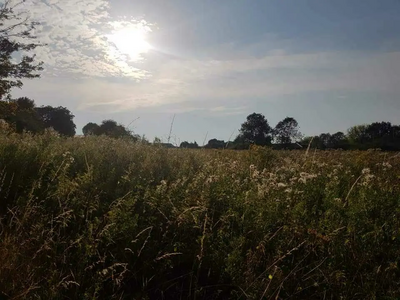The Tory Double Whammy - first their Environment Bill will remove protection from Green Spaces, then their Planning Bill will open the country of to Developers.
"The Conservatives are failing to protect nature", Sarah Olney MP
The Liberal Democrats HAVE proposed changes to the Environment Bill to protect green spaces and wildlife.

The Conservatives' Environment Bill will fail to protect British nature and our beautiful landscapes.
We are already living in one of the most nature-depleted countries in the world. Our waterways are in a poor condition with just 14% in good condition. More than 40% of native species are in decline.
This is an embarrassment - as the Government claims to be increasing ambition and pushing for nature-based solutions in the run-up to both COP26 and the Convention on Biological Diversity, we're failing to get our own house in order.
We must significantly increase our protections for nature and biodiversity in this country, including our Areas of Outstanding Natural Beauty. We need a strong independent body with the powers and resources to hold the Government to account.
Alongside the Environment Bill being debated today, the Government have proposed a massive change to planning law.
The Bill would deny Councils the ability to block new developments for environmental reasons. The Conservatives' plans would rip power away from communities and silence local environmental groups to allow developers to build as they please.
We should have expected nothing less from the Tory Party which has taken over £11 million in donations from developers.

That's why I tabled an amendment to stop reckless developments harming nature and reducing biodiversity.
My amendment would have given real teeth to the currently toothless Environment Bill and would have given Councils the power to protect wildlife and green spaces.
(The Conservatives voted against giving communities extra power to protect nature and improve biodiversity.)
